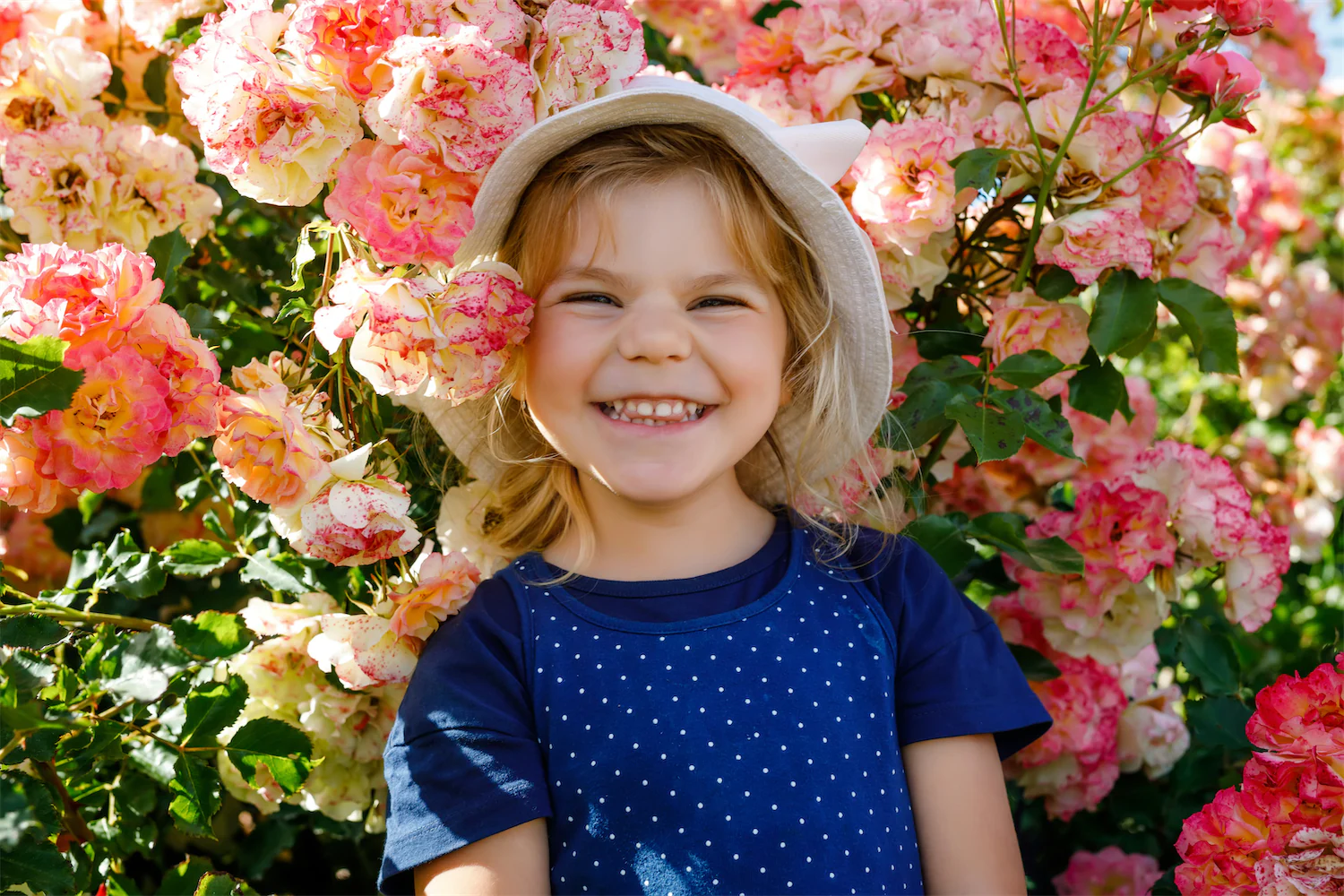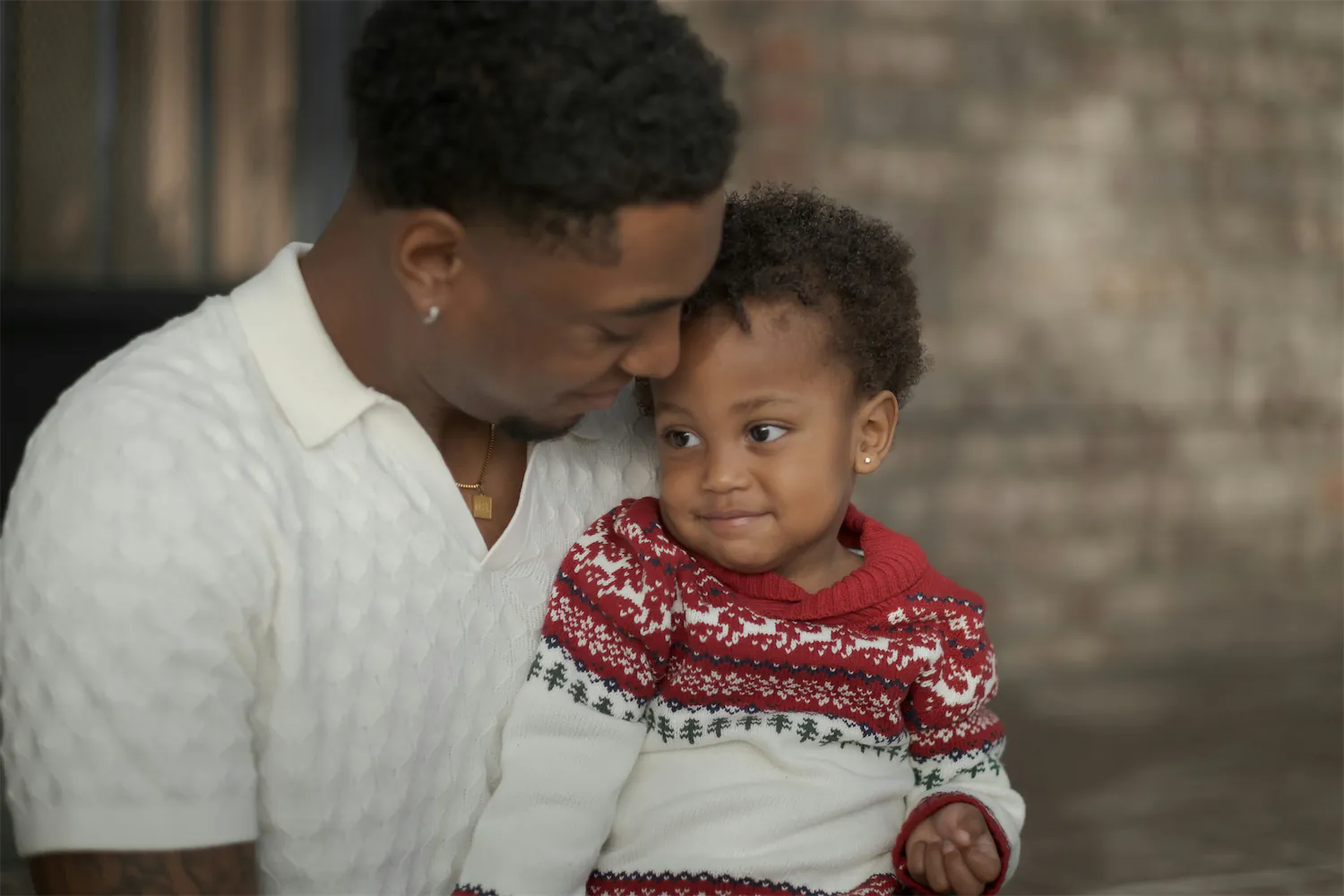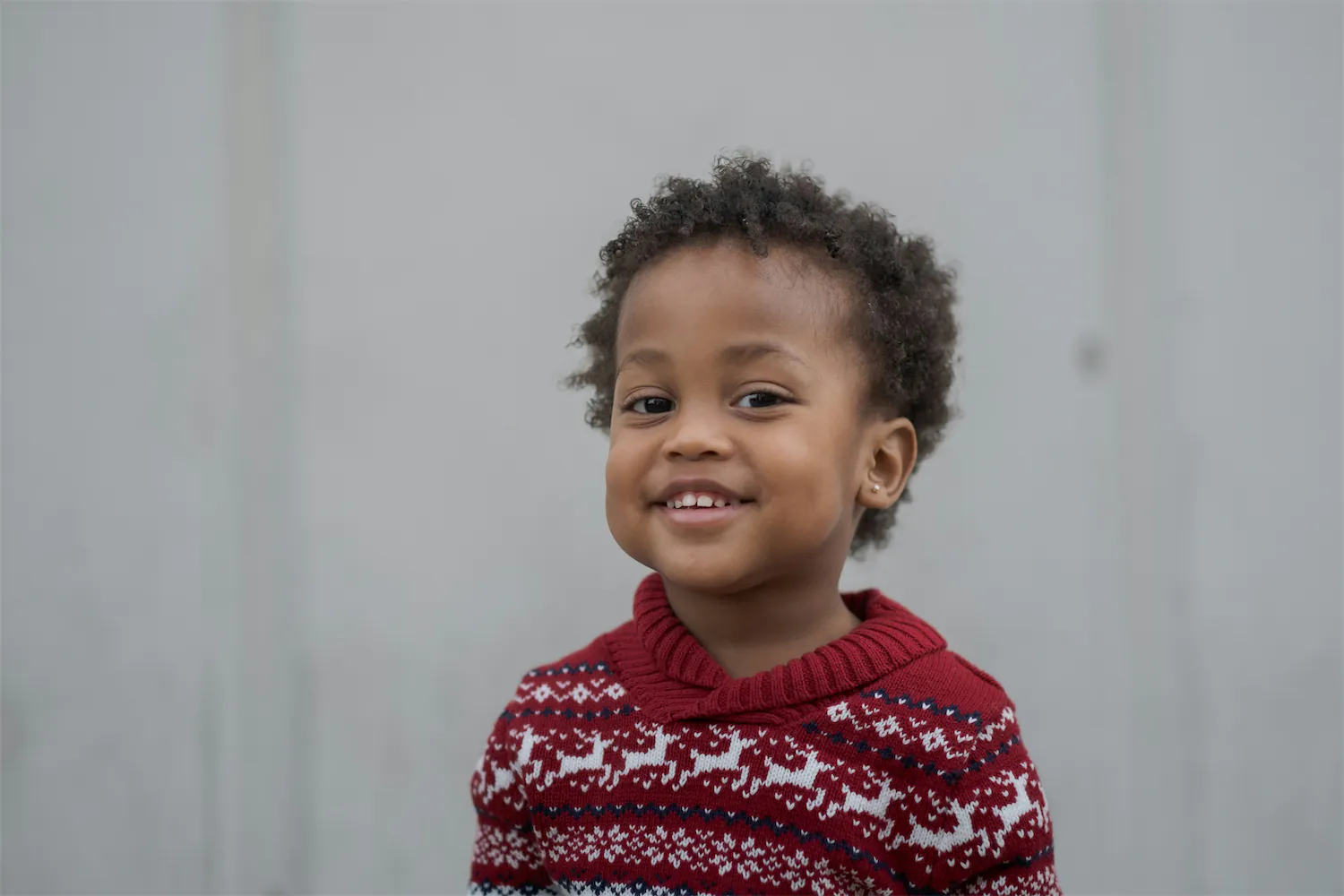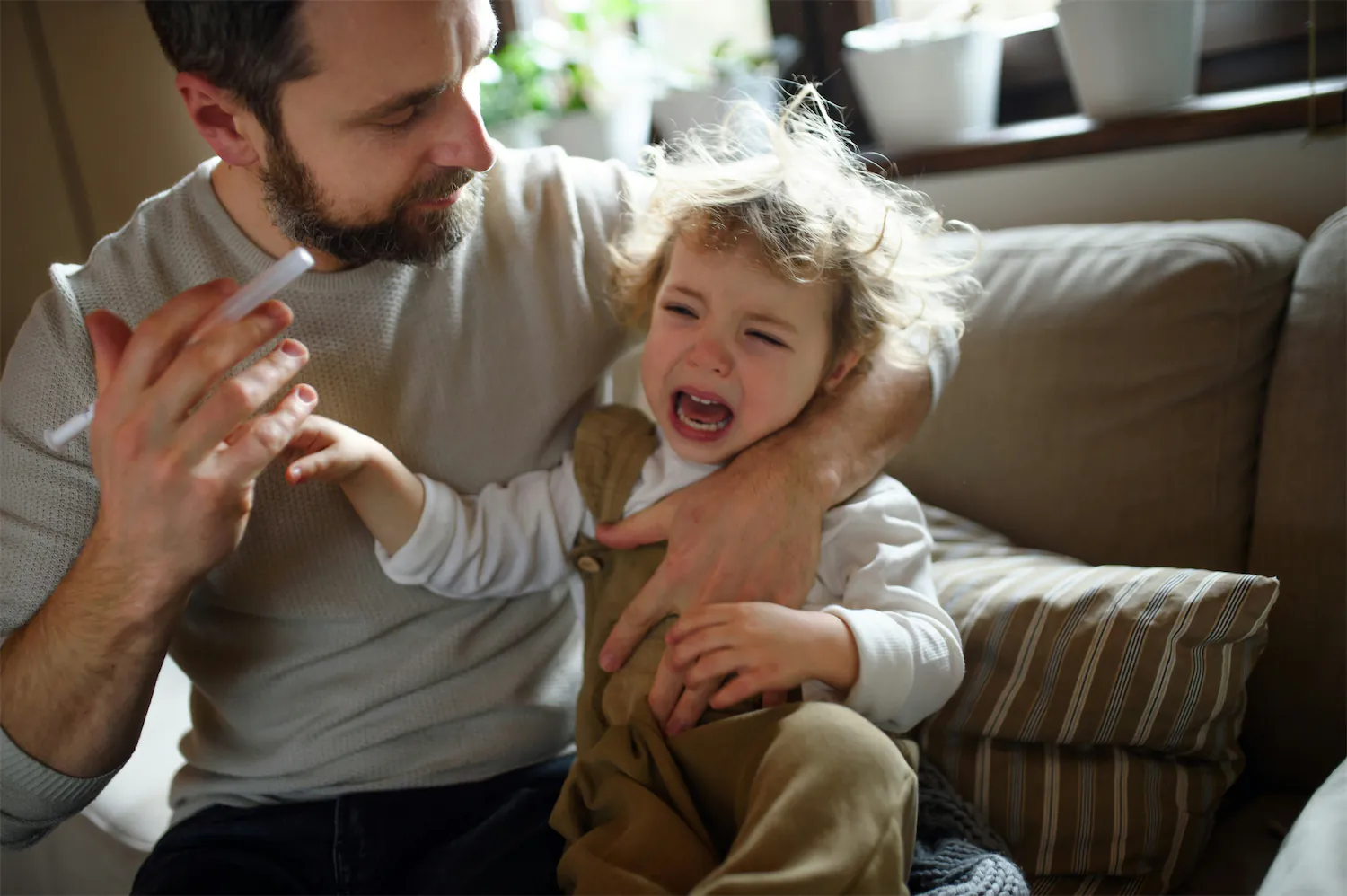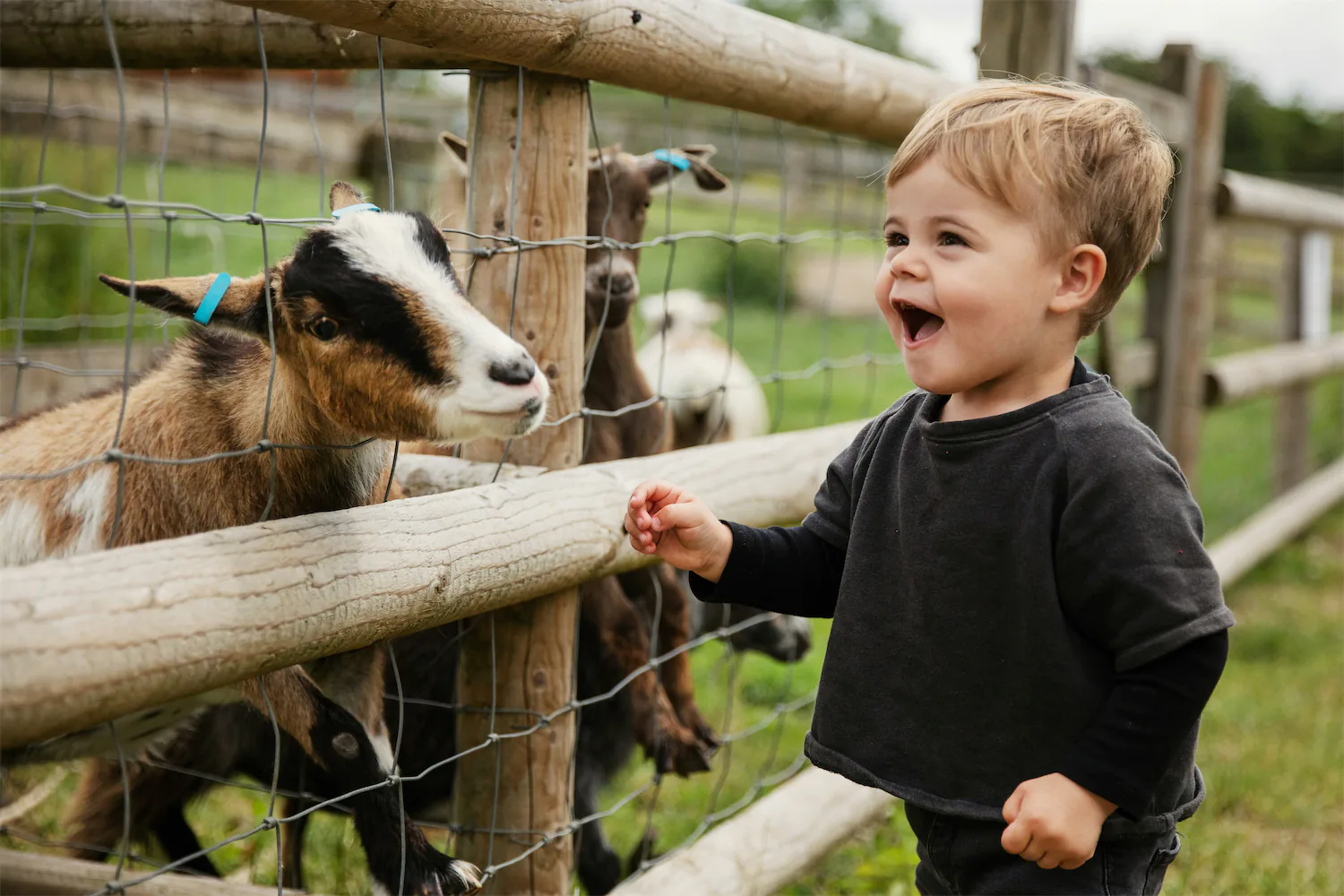Síntomas de ansiedad en los niños
Síntomas de ansiedad en los niños
Entendiendo la ansiedad en los niños y cómo ayudarles a afrontarla.
Entendiendo la ansiedad en los niños y cómo ayudarles a afrontarla.

Dahlia Rimmon, RDN
Redactor de Contenidos

Jennifer Gillette, MA
Especialista en Desarrollo y Comportamiento Infantil



Causas comunes de la ansiedad infantil
Historial familiar de ansiedad: Los niños con padres o parientes cercanos que tienen trastornos de ansiedad son más propensos a desarrollar ansiedad ellos mismos.
Estrés: Cambios significativos en la vida como mudarse a un nuevo hogar, cambiar de escuela, presenciar conflictos familiares o el divorcio de los padres pueden generar estrés y resultar en ansiedad.
Trauma: El trauma emocional o físico como accidentes de baño, acoso, abuso o negligencia, o desastres naturales pueden causar ansiedad.
Estilo de crianza: Estilos de crianza sobreprotectores o ansiosos pueden causar que un niño se vuelva ansioso.
Desafíos académicos: Las crecientes expectativas académicas, las exigencias de rendimiento y el miedo al fracaso pueden crear un estrés significativo para los niños.
Estresores sociales: La competencia social o situaciones sociales nuevas (nueva escuela o nuevo guardería) pueden causar ansiedad. Esto se conoce como ansiedad social.
Exposición a medios y tecnología: La exposición a las noticias, redes sociales y contenidos aterradores pueden abrumar a los niños y contribuir a la ansiedad.
Factores biológicos: Desequilibrios en la química cerebral, diferencias en los neurotransmisores y rasgos temperamentales pueden influir en los niveles de ansiedad de un niño.
Desencadenantes de la ansiedad
Ciertas situaciones o experiencias pueden desencadenar ansiedad o pensamientos ansiosos en los niños, incluyendo:
Separación de padres o cuidadores (ansiedad de separación).
Situaciones sociales como hablar en público o hacer nuevos amigos.
Cambios y transiciones en las rutinas (comenzar en la escuela o mudarse a una nueva casa).
Presiones académicas como competiciones, pruebas o exámenes.
Miedo al fracaso o cometer errores.
Experiencias sensoriales abrumadoras (ruidos fuertes, espacios llenos de gente, luces brillantes, temperaturas incómodas).
Preocupaciones de salud y seguridad.
Fobias (miedo a la oscuridad o miedo a los insectos).
Signos de ansiedad en niños
Cada niño experimenta la ansiedad de manera diferente, pero los signos comunes incluyen:
Preocupación o miedo excesivo que parece desproporcionado para la situación.
Síntomas físicos como dolores de estómago, dolores de cabeza, pulso acelerado, sudoración o náuseas.
Inquietud.
Dificultad para dormir.
Irritabilidad.
Estallidos emocionales como llorar frecuentemente y cambios de humor.
Evitación de ciertos lugares o actividades.
Retiro de actividades sociales y dificultad para hacer amigos.
Problemas para concentrarse.
Comportamientos repetitivos.
Necesidad excesiva de seguridad (preguntar frecuentemente "¿y si?").
Autocharlas negativas.
Perfeccionismo.
Apego excesivo.
Cómo ayudar a los niños a enfrentar la ansiedad
Valida los sentimientos ansiosos de tu hijo.
Reconoce sus miedos o preocupaciones sin reforzarlos.
Evita minimizar o restar importancia a la ansiedad de tu hijo.
Enseña estrategias de calma o afrontamiento como la respiración, el anclaje sensorial y la relajación muscular progresiva.
Establece rutinas predecibles para reducir la incertidumbre y prepárate para las transiciones (usa horarios visuales o tablas de rutina).
Ayuda a tu hijo a enfrentar gradualmente sus miedos de manera solidaria, como leer libros ilustrados sobre sentimientos o miedos ansiosos.
Adopta un estilo de vida saludable con sueño adecuado, actividad física, una dieta saludable, juego al aire libre y limita las pantallas.
Modela un manejo saludable del estrés.
Busca apoyo profesional.
Evitar completamente situaciones que provoquen ansiedad puede reforzar los miedos. En su lugar, ofrece exposición gradual y aliento para ayudar a construir confianza y habilidades de afrontamiento.
Manejando la ansiedad infantil
Manejar la ansiedad infantil a menudo involucra una combinación de enfoques:
Terapia Cognitivo-Conductual (TCC): Terapia para identificar y desafiar pensamientos ansiosos y aprender mecanismos de afrontamiento.
Terapia de juego: Terapia para niños pequeños para ayudar a expresar y regular sus emociones a través del juego.
Coaching para padres: Brinda estrategias para apoyar a los niños pequeños sin habilitar comportamientos.
Consejeros escolares: Proporciona apoyo emocional en la escuela y herramientas de afrontamiento, especialmente para la ansiedad social.
Medicamento: En algunos casos, los medicamentos pueden ayudar a manejar la ansiedad y los sentimientos ansiosos en los niños.
Cuándo consultar a un experto en salud mental pediátrica
Considera buscar un experto en salud mental pediátrica si tu hijo:
Tiene dificultades con la ansiedad que interfiere con la escuela, el sueño o las actividades diarias.
Si tu niño experimenta preocupación o miedo persistente que dura semanas o meses.
Sufre de dolores de cabeza frecuentes, dolores de estómago o fatiga.
Tiene ataques de pánico, apego extremo o llanto incontrolable.
Muestra poca mejora a pesar de la seguridad, las estrategias de afrontamiento o la exposición gradual.
Si tienes preguntas sobre la ansiedad de tu hijo, comunícate con tu pediatra local o de Summer Health para obtener apoyo. Summer Health es una plataforma de telemedicina pediátrica que ofrece atención las 24 horas, brindando respuestas para todo, desde preocupaciones urgentes hasta preguntas cotidianas sobre la salud de tu hijo.
Causas comunes de la ansiedad infantil
Historial familiar de ansiedad: Los niños con padres o parientes cercanos que tienen trastornos de ansiedad son más propensos a desarrollar ansiedad ellos mismos.
Estrés: Cambios significativos en la vida como mudarse a un nuevo hogar, cambiar de escuela, presenciar conflictos familiares o el divorcio de los padres pueden generar estrés y resultar en ansiedad.
Trauma: El trauma emocional o físico como accidentes de baño, acoso, abuso o negligencia, o desastres naturales pueden causar ansiedad.
Estilo de crianza: Estilos de crianza sobreprotectores o ansiosos pueden causar que un niño se vuelva ansioso.
Desafíos académicos: Las crecientes expectativas académicas, las exigencias de rendimiento y el miedo al fracaso pueden crear un estrés significativo para los niños.
Estresores sociales: La competencia social o situaciones sociales nuevas (nueva escuela o nuevo guardería) pueden causar ansiedad. Esto se conoce como ansiedad social.
Exposición a medios y tecnología: La exposición a las noticias, redes sociales y contenidos aterradores pueden abrumar a los niños y contribuir a la ansiedad.
Factores biológicos: Desequilibrios en la química cerebral, diferencias en los neurotransmisores y rasgos temperamentales pueden influir en los niveles de ansiedad de un niño.
Desencadenantes de la ansiedad
Ciertas situaciones o experiencias pueden desencadenar ansiedad o pensamientos ansiosos en los niños, incluyendo:
Separación de padres o cuidadores (ansiedad de separación).
Situaciones sociales como hablar en público o hacer nuevos amigos.
Cambios y transiciones en las rutinas (comenzar en la escuela o mudarse a una nueva casa).
Presiones académicas como competiciones, pruebas o exámenes.
Miedo al fracaso o cometer errores.
Experiencias sensoriales abrumadoras (ruidos fuertes, espacios llenos de gente, luces brillantes, temperaturas incómodas).
Preocupaciones de salud y seguridad.
Fobias (miedo a la oscuridad o miedo a los insectos).
Signos de ansiedad en niños
Cada niño experimenta la ansiedad de manera diferente, pero los signos comunes incluyen:
Preocupación o miedo excesivo que parece desproporcionado para la situación.
Síntomas físicos como dolores de estómago, dolores de cabeza, pulso acelerado, sudoración o náuseas.
Inquietud.
Dificultad para dormir.
Irritabilidad.
Estallidos emocionales como llorar frecuentemente y cambios de humor.
Evitación de ciertos lugares o actividades.
Retiro de actividades sociales y dificultad para hacer amigos.
Problemas para concentrarse.
Comportamientos repetitivos.
Necesidad excesiva de seguridad (preguntar frecuentemente "¿y si?").
Autocharlas negativas.
Perfeccionismo.
Apego excesivo.
Cómo ayudar a los niños a enfrentar la ansiedad
Valida los sentimientos ansiosos de tu hijo.
Reconoce sus miedos o preocupaciones sin reforzarlos.
Evita minimizar o restar importancia a la ansiedad de tu hijo.
Enseña estrategias de calma o afrontamiento como la respiración, el anclaje sensorial y la relajación muscular progresiva.
Establece rutinas predecibles para reducir la incertidumbre y prepárate para las transiciones (usa horarios visuales o tablas de rutina).
Ayuda a tu hijo a enfrentar gradualmente sus miedos de manera solidaria, como leer libros ilustrados sobre sentimientos o miedos ansiosos.
Adopta un estilo de vida saludable con sueño adecuado, actividad física, una dieta saludable, juego al aire libre y limita las pantallas.
Modela un manejo saludable del estrés.
Busca apoyo profesional.
Evitar completamente situaciones que provoquen ansiedad puede reforzar los miedos. En su lugar, ofrece exposición gradual y aliento para ayudar a construir confianza y habilidades de afrontamiento.
Manejando la ansiedad infantil
Manejar la ansiedad infantil a menudo involucra una combinación de enfoques:
Terapia Cognitivo-Conductual (TCC): Terapia para identificar y desafiar pensamientos ansiosos y aprender mecanismos de afrontamiento.
Terapia de juego: Terapia para niños pequeños para ayudar a expresar y regular sus emociones a través del juego.
Coaching para padres: Brinda estrategias para apoyar a los niños pequeños sin habilitar comportamientos.
Consejeros escolares: Proporciona apoyo emocional en la escuela y herramientas de afrontamiento, especialmente para la ansiedad social.
Medicamento: En algunos casos, los medicamentos pueden ayudar a manejar la ansiedad y los sentimientos ansiosos en los niños.
Cuándo consultar a un experto en salud mental pediátrica
Considera buscar un experto en salud mental pediátrica si tu hijo:
Tiene dificultades con la ansiedad que interfiere con la escuela, el sueño o las actividades diarias.
Si tu niño experimenta preocupación o miedo persistente que dura semanas o meses.
Sufre de dolores de cabeza frecuentes, dolores de estómago o fatiga.
Tiene ataques de pánico, apego extremo o llanto incontrolable.
Muestra poca mejora a pesar de la seguridad, las estrategias de afrontamiento o la exposición gradual.
Si tienes preguntas sobre la ansiedad de tu hijo, comunícate con tu pediatra local o de Summer Health para obtener apoyo. Summer Health es una plataforma de telemedicina pediátrica que ofrece atención las 24 horas, brindando respuestas para todo, desde preocupaciones urgentes hasta preguntas cotidianas sobre la salud de tu hijo.
Salud de Verano ofrece atención pediátrica urgente rápida y confiable a través de doctores en línea, todo por mensaje de texto. Ya sea que te preocupe la fiebre de tu bebé, erupciones o cualquier otra inquietud de salud infantil, proporcionamos asesoramiento y apoyo experto en cualquier momento, directamente desde tu teléfono.
Salud de Verano ofrece atención pediátrica urgente rápida y confiable a través de doctores en línea, todo mediante mensajes de texto. Ya sea que estés preocupado por la fiebre de tu bebé, sarpullidos u otras preocupaciones de salud infantil, te brindamos asesoramiento experto y apoyo en cualquier momento, directamente desde tu teléfono.

¡Nunca te pierdas una publicación!
¡Suscríbete a nuestro boletín para recibir artículos y guías directamente en tu bandeja de entrada!


